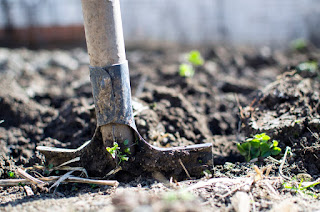Crop Science and agriculture: Sustainability and Innovation
Crops
provide human with important products, including food, feed, vegetables,
cooking oil, fibres, woods, and medicines. As the global population increases,
we face great challenges in providing more crop products to feed the world from
decreasing arable land with insufficient water and frequent natural disasters. Crop science
has gained increasing importance in meeting these challenges in a globally
warming environment, and ensuring food security through scientific and
technological advances has become the goal of all countries worldwide.
Sustainable crop production and global food security depend on innovation in
multiple fields of crop science and technology, including genetics, breeding,
agronomy, crop physiology, germplasm resources, grain chemistry, grain storage
and processing, crop management practices, crop biotechnology, and
biomathematics.
Crop science is an important component of agricultural
science and also the key to ensuring world food security, promoting sustainable
utilization of agricultural resources, and effectively protecting agricultural
environments. These
articles describe advances in crop science and technology in the following
representative fields: hybrid rice breeding, cropping system innovation,
agronomic management.
Hybrid
rice Breeding:
Hybrid rice is
produced by growing an innate rice assortment having sterile dust which is
cross pollinated with typical dust from contiguous rice plants of an alternate
inbred assortment. hybrid rice accordingly has two hereditarily extraordinary
guardians. Similarly as with different sorts of half and halves, crossover rice
commonly shows mixture force which is become under an indistinguishable
conditions from equivalent high-yielding innate rice assortments it can deliver
up to 30% more rice.
Cropping System Innovation:
Cropping
system innovation is developing favorable cropping systems in agriculture,
including intercropping and crop rotation, leading to a sustainable ecological
system. As global warming becomes increasingly important, cropping systems are
undergoing innovation through new variety development, cropping region
adjustment, and cropping practice optimization.
Agronomic
Management:
Agronomic management
is the most important input for getting potential yield and high net returns in
any crop or crop sequence. Rice-wheat is the most predominant cropping system
of the northern plains of India. Most of the farmers used to grow old varieties
of rice and wheat without any row arrangement. Fertilization is mainly limited
to nitrogenous fertilizer only. Due to heavy depletion of plant nutrients,
soils and the system show signs of fatigue, and there is a general decline in
yield of rice and wheat and a decrease in partial factor productivity of the
fertilizer applied.





Comments
Post a Comment